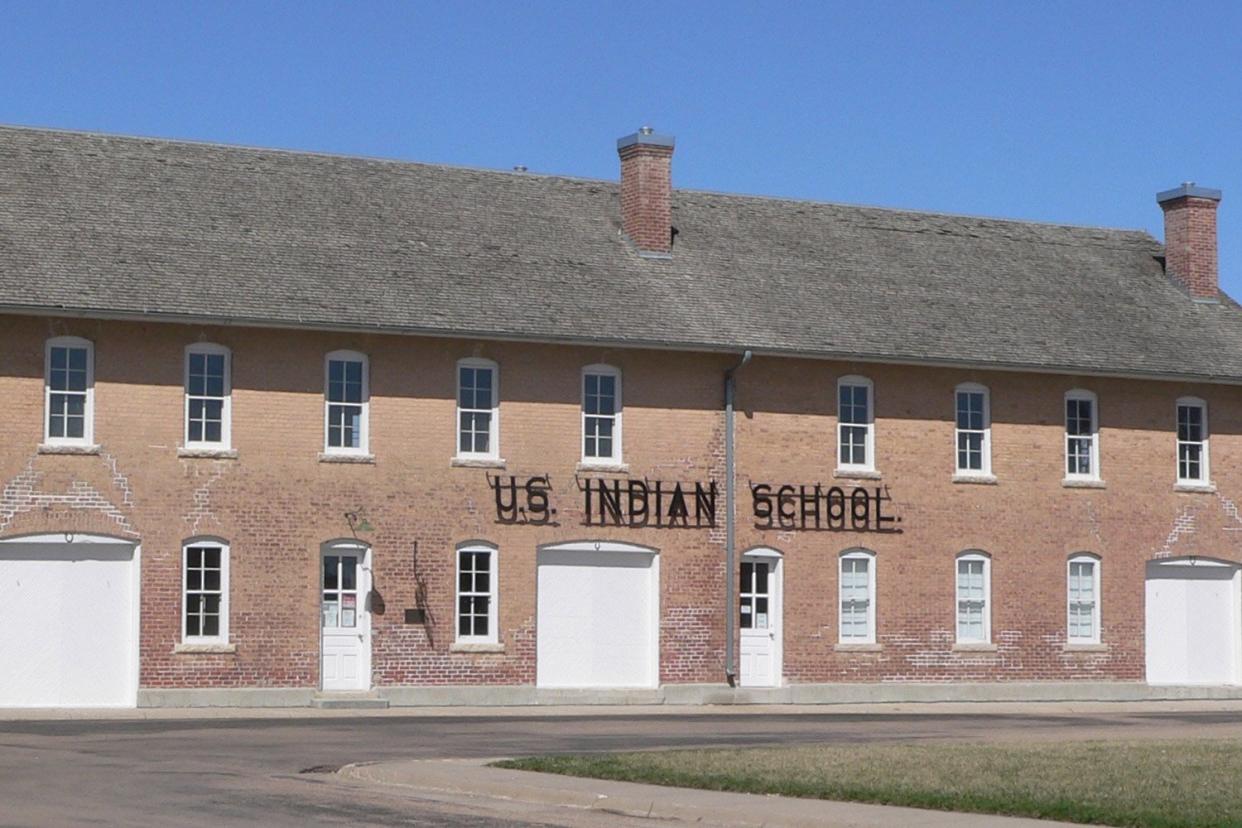Researchers Identify 102 Native American Students Who Died at Government-Run Boarding School

Ammodramus/wikipedia The Genoa US Indian School
Researchers have identified over 100 students who died at a government-run boarding school for Native Americans in Nebraska.
Thanks to the efforts of the Genoa Indian School Digital Reconciliation Project, a total of 102 names of students who attended the U.S. Indian School have been uncovered, according to the Omaha World-Herald.
Margaret Jacobs, a history professor at the University of Nebraska-Lincoln and the co-director of the project, told the outlet that some names may be duplicates but she believes the death toll is likely much higher, though no graves have been found.
"These children died at the school," Jacobs told the World-Herald. "They didn't get a chance to go home. I think that the descendants deserve to know what happened to their ancestors."
The U.S. Indian School in Genoa was operated by the U.S. government from 1884 to 1934, according to the World-Herald. During its peak in 1932, the school housed a total of 599 students, ranging in age from 4 to 22, across its 640-acre campus.
RELATED: Graves Belonging to 145 African-American Adults and Children Discovered on Fla. High School Campus
Prior to their arrival, many of the students were removed from their families and homelands against their will, according to The Guardian. They then were forced into hard labor and subjected to cruel treatment, such as being prohibited from speaking their tribal languages and being required to convert to Christianity as a way to diminish and completely erase their cultures, the outlet reported.
The school was the fourth of its kind in the U.S. and one of the largest in a system of 25 federal Indian boarding schools, per the World-Herald.
In the years since its closure, the U.S. Indian School has become the subject of a nationwide investigation as researchers attempt to identify the students who died on its campus.
It has been a challenging task, as no graves have been found and the school's documents were either destroyed or lost when it closed down in 1934, according to the World-Herald.
"I think America needs to take these little children back home, and if we're not able to find them, I think we need to do something to recognize that they lost their lives there," Judi gaiashkibos, a citizen of the Ponca Tribe whose mother went to the boarding school, told the outlet.
RELATED VIDEO: A Mom Called Police Because Two Native American Teens on Same College Tour Made Her 'Nervous'
In 2017, the Genoa Indian School Digital Reconciliation Project was launched with the goal of "telling the stories of the American Indian children who attended Genoa, the stories of their communities, and the stories of their descendants," per their website.
To uncover the identities, researchers have been relying on newspapers clippings and oral history from former students, according to the World-Herald.
Through her research, Jacobs was able to determine that many of the students died from diseases, like pneumonia, tuberculosis and measles, the outlet reported. Other causes of death included accidents, such as drowning, shooting, and being hit by a freight train.
While they work on compiling the list, Jacobs told the World-Herald that the victims' names won't be published until they consult tribal leaders and attempt to contact relatives of the dead.
The Federal Indian Boarding School Truth Initiative — which was launched by U.S. Secretary of the Interior Deb Haaland in June in the wake of the discovery of 215 children's bodies buried at an indigenous school in Canada — will also be involved with the matter.
Per the World-Herald, the initiative will be conducting an investigation into the allegations of abuse at the school and helping to find burial sites for the deceased, according to the outlet.
"I have a lot of feelings, a lot of mixed feelings," gaiashkibos told the World-Herald of uncovering details about her mom's time at the school. "As a country, I think there was a collective decision that this isn't the history that we want to tell. That the truth is too painful to reveal. I think it's time to take responsibility for that and to do something positive for the future."
"I'm looking to see something good come out of this," gaiashkibos added. "Perhaps we will find some way to restore language, to restore some of the culture that was stripped from us. Also, [to] hold people accountable. Everyone needs to learn the stories and say, 'America did this and we can do better.'"

